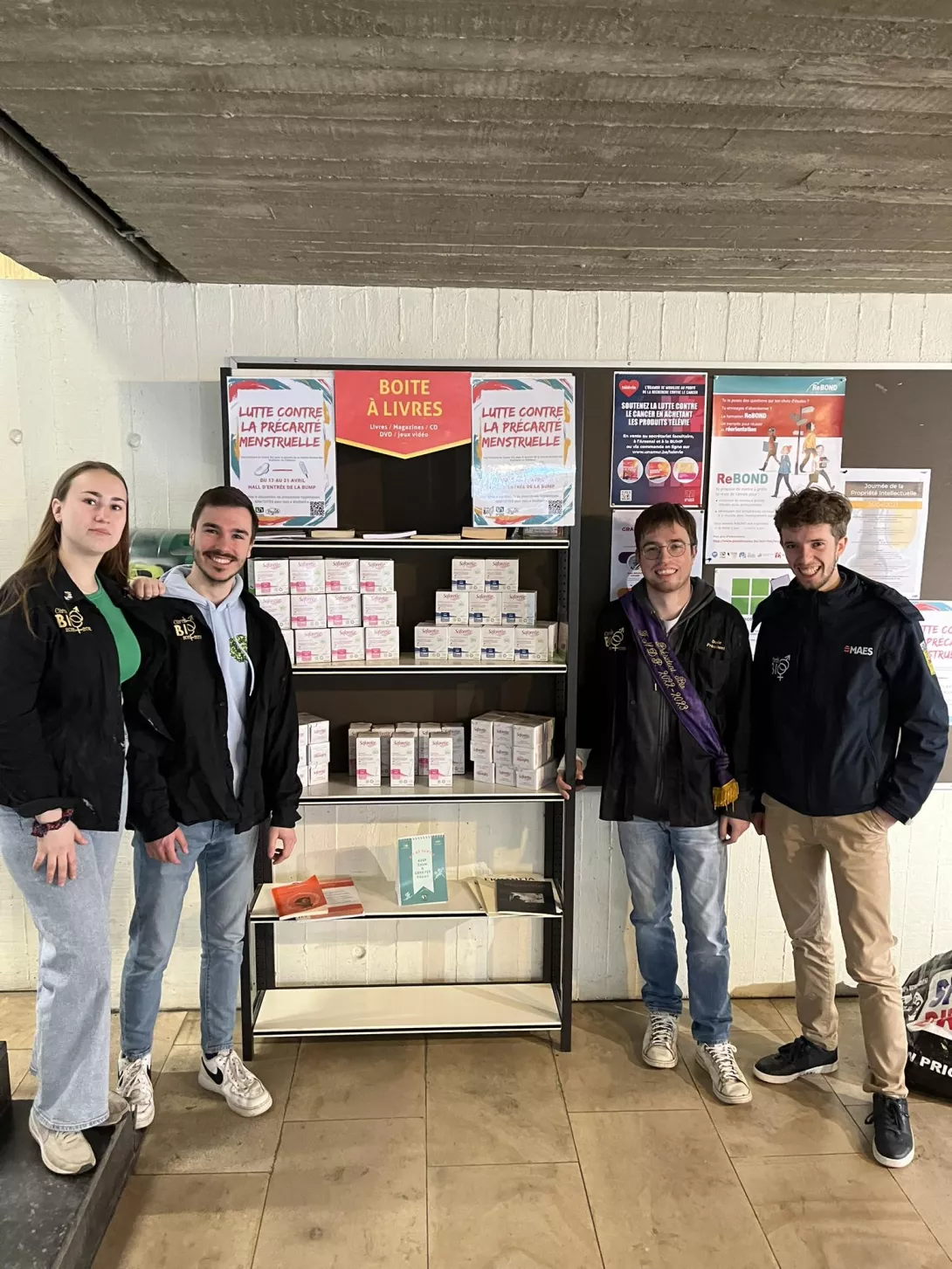The first action
The Biology Student Club decided to take action by making free sanitary pads available to all students during the week of 17 to 21 April. All they had to do was go to the Bump during opening hours. To organise this awareness-raising week, the committee was able to count on the support of the UNamur Student Social Unit. This was an excellent initiative on the part of the club, which is also committed to the students’ health and well-being. This was not the Biology Circle's first action: they had also organised a week to raise awareness about sexually transmitted infections.

The second action
To mark the World Menstrual Hygiene Day on 18 May, the Students’ social unit, in collaboration with BruZelle, distributed free disposable tampons and sanitary towels from 26 to 31 May at various locations on campus (the Bump, the Arsenal, the Solidarithèque and the Female students’ dormitory).
The consequences for women living in precarious menstrual conditions
Not having access to quality sanitary protection because of poverty leads to feelings of discomfort and shame. A woman who cannot meet this essential need is more likely to suffer social exclusion because she cannot go to work, school or any other place with peace of mind. Dropping out of school and lack of professional opportunities are consequences of menstrual insecurity. What's more, making your own sanitary towels represents a major health risk, the consequences of which are listed in an article in Vif Weekend.
Did you know?
28 May was chosen to represent the World Menstrual Hygiene Day for two reasons: the 28th because the average length of a menstrual cycle is 28 days, and the month of May corresponds to the average number of days of menstruation.